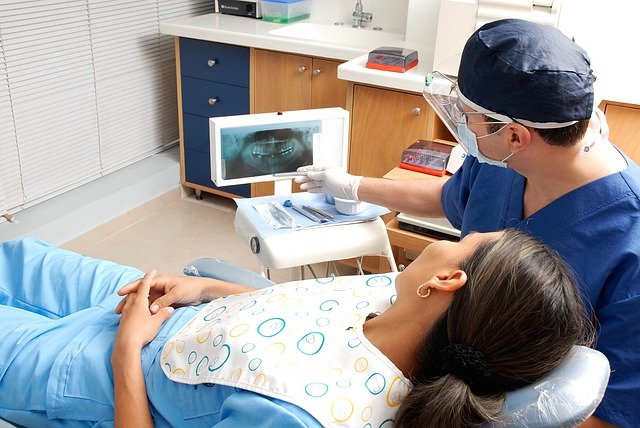Understanding Lung Disease Treatment Options
Lung health is vital for overall well-being, supported by avoiding smoking, reducing exposure to pollutants, and exercising regularly. Regular screenings and early care for conditions like asthma or COPD help maintain respiratory function. Read to learn more about lung health.

Comprehensive Lung Health Management Strategies
Effective lung health management begins with accurate diagnosis and personalized treatment plans. Healthcare providers typically start with pulmonary function tests, imaging studies, and blood work to determine the specific type and severity of lung disease. Treatment strategies often involve a multidisciplinary approach, combining pulmonologists, respiratory therapists, and other specialists. Patients may benefit from bronchodilators, anti-inflammatory medications, oxygen therapy, or immunosuppressive drugs depending on their condition. Lifestyle modifications, including smoking cessation, regular exercise within individual limits, and dietary changes, play crucial roles in maintaining optimal respiratory function.
Essential Components of a Lung Health Guide
A comprehensive lung health guide encompasses prevention, early detection, and treatment phases. Prevention strategies include avoiding environmental pollutants, maintaining indoor air quality, staying current with vaccinations, and adopting healthy lifestyle habits. Early detection involves recognizing warning signs such as persistent cough, shortness of breath, chest pain, or unexplained fatigue. Regular screenings for high-risk individuals, particularly former smokers or those with occupational exposures, can identify problems before symptoms develop. Treatment components vary widely but may include pharmaceutical interventions, pulmonary rehabilitation programs, and in severe cases, surgical options like lung transplantation.
Key Lung Health Information for Patients
Patients seeking lung health information should understand that treatment outcomes depend heavily on early intervention and adherence to prescribed therapies. Different lung conditions require specific approaches: asthma management focuses on trigger avoidance and bronchodilator therapy, while COPD treatment emphasizes symptom control and preventing exacerbations. Lung cancer treatment may involve surgery, chemotherapy, radiation therapy, or targeted therapies depending on the stage and type. Interstitial lung diseases often require anti-fibrotic medications or immunosuppressive treatments. Patients should maintain open communication with their healthcare teams, track symptoms using peak flow meters or symptom diaries, and understand when to seek emergency care for worsening conditions.
Treatment Costs and Healthcare Provider Options
Lung disease treatment costs vary significantly based on the specific condition, severity, and required interventions. Basic consultations with pulmonologists typically range from $300 to $500, while comprehensive diagnostic workups including CT scans and pulmonary function tests may cost $1,500 to $3,000. Medication expenses can range from $50 monthly for generic inhalers to $5,000 monthly for specialized drugs like anti-fibrotic agents. Advanced treatments such as lung transplantation can exceed $500,000, though insurance coverage varies.
| Treatment Type | Provider | Cost Estimation |
|---|---|---|
| Initial Consultation | Pulmonologist | $300-$500 |
| Diagnostic Testing | Hospital/Imaging Center | $1,500-$3,000 |
| Monthly Medications | Pharmacy | $50-$5,000 |
| Pulmonary Rehabilitation | Specialized Centers | $2,000-$4,000 |
| Lung Transplant | Major Medical Centers | $500,000+ |
Prices, rates, or cost estimates mentioned in this article are based on the latest available information but may change over time. Independent research is advised before making financial decisions.
Advanced Treatment Technologies and Innovations
Modern lung disease treatment increasingly incorporates advanced technologies and innovative approaches. Minimally invasive procedures like bronchoscopic lung volume reduction and endobronchial valve placement offer alternatives to traditional surgery for some patients. Precision medicine approaches use genetic testing to identify targeted therapies, particularly beneficial for lung cancer patients. Telemedicine has expanded access to specialized care, allowing patients in remote areas to consult with pulmonary specialists. Artificial intelligence assists in early detection through advanced imaging analysis, while wearable devices help monitor respiratory parameters continuously.
Creating Effective Treatment Plans
Successful lung disease treatment requires individualized care plans that address both medical and psychosocial needs. Healthcare teams consider factors such as disease severity, patient age, overall health status, and personal preferences when developing treatment strategies. Regular monitoring and plan adjustments ensure optimal outcomes as conditions evolve. Patient education remains paramount, empowering individuals to recognize symptom changes, properly use medications and devices, and maintain healthy lifestyle practices. Support groups and counseling services often complement medical treatments, helping patients cope with chronic illness challenges and maintain quality of life.
Understanding lung disease treatment options empowers patients to work effectively with their healthcare providers in managing respiratory conditions. From basic preventive measures to advanced therapeutic interventions, numerous resources exist to support lung health throughout different life stages. Success depends on early recognition of symptoms, prompt medical attention, adherence to prescribed treatments, and ongoing communication with healthcare teams about changing needs and treatment responses.
This article is for informational purposes only and should not be considered medical advice. Please consult a qualified healthcare professional for personalized guidance and treatment.




